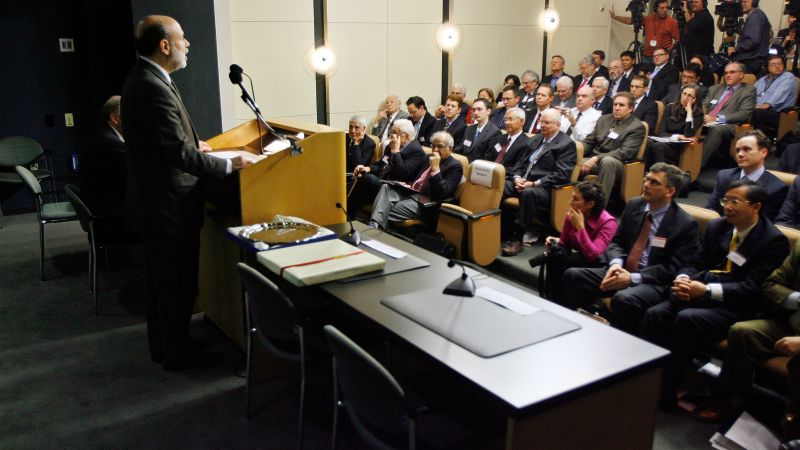Editor’s Note: Kevin Gentry is a board member of the Cato Institute. This letter was written in response to an opinion article published on CNN.com earlier this week.
Story highlights
Kevin Gentry: Charles Koch has consistently championed libertarian ideas
Gentry: Cato Chairman Robert Levy would have you believe otherwise
He says the Koch brothers support independence for Cato and have given it $40 million
Gentry: If Levy doesn’t stop dispute, Cato will weaken and lose its reputation
CNN
—
In 1974, Charles Koch started the Charles Koch Foundation. In 1976, the foundation was renamed Cato Institute, with Koch as one of the co-founders. His vision was to build a nonpartisan organization that would advance ideas that enable all people to prosper by promoting liberty, limited government, free markets and peace. That vision has remained a constant since the beginning.
I currently serve on the board of Cato, and have worked with libertarian organizations for more than 20 years, including Mercatus Center and the Institute for Humane Studies. I have worked closely with Charles Koch and his brother David on numerous libertarian endeavors. In each instance, these two men have consistently championed libertarian principles, even in the face of unfair and inaccurate criticism.
Robert Levy, Cato’s current chairman, would have you believe otherwise. According to his April 2 op-ed, Charles and David Koch seek to turn Cato into a “policy shop for the Kochs’ political operations.” This is patently false.

David, who has been a director of Cato since 1987 and serves on its executive committee, and Charles have consistently supported a nonpartisan Cato. In 1980, Charles brought a resolution before the Cato board confirming that Cato should be nonpartisan. Together, they have contributed approximately $40 million to the institute. Cato’s independence has never been in question in the 37 years the Kochs have been involved with the organization, and there is nothing real to suggest it will be an issue going forward.
In bringing up previous conversations that he had with David Koch, Levy is distorting the record in order to support his position. I attended the November 2011 meeting where Levy spoke with David. Subsequent conversations with Levy confirmed that the Kochs have never proposed that Cato cooperate with only one group, or work exclusively with Koch-affiliated groups or groups affiliated with one political party. David reiterated this point publicly in a statement on March 22.
Levy wrote that the Kochs seek to “get (their) way” or “take control” of Cato. This is misleading. Ed Crane, who is the president of Cato, wants to maintain control of the institute by circumventing Cato’s shareholders’ agreement. All that the Kochs seek is for the parties to Cato’s shareholders’ agreement (which has been in place since 1985) to be bound by that agreement. Crane and Levy do not want this because, with the recent death of one of Cato’s shareholders, they are concerned that they will lose control of Cato. We should ask why self-professed libertarians would seek to abrogate voluntary agreements – a key tenet of libertarian thought.
Crane and Levy have talked about seeking a board of independent directors, but every action by them suggests they want the opposite – a board that is responsive to and dependent upon them, as well as donors they view as acceptable. When I was unanimously elected to the Cato board in 2010, I was excited about the prospect of working with an organization of Cato’s reputation. I had also previously been offered a job by Crane in 2002. I expected an organization where people would be free to engage in constructive debates – where differing points of view would be acknowledged and respected. What I found was something very different.
What is most upsetting is that all of this public battle could have been avoided. Charles and David Koch were willing to keep the 2011 Cato board in place without making any changes, but Crane and Levy demanded an immediate vote on directors. The Kochs have also proposed third-party mediation, but Crane and Levy refused that as well, calling mediation a delay tactic.
It is Crane and Levy’s concern about their control of Cato, rather than concern for the good of the organization, that is driving the dispute. Cato is losing its voice and focus, at a time when the debate over the role of the government in our society is more needed than ever.
If Cato’s board members truly care about the institute’s future, they should demand that Crane and Levy stop this scorched-earth public relations fight, which is weakening the organization and harming its reputation, and force immediate negotiations.
Just last week, Charles Koch again proposed that the parties choose a third-party mediator in hopes of reaching an agreement. Cato’s management continues to refuse it. They show no desire to end this state of affairs short of capitulation to Crane and Levy’s demands. If Cato is truly to become independent, then it needs to become independent from all of its shareholders – first and foremost, Crane.
Follow us on Twitter @CNNOpinion.
Join us on Facebook/CNNOpinion.
